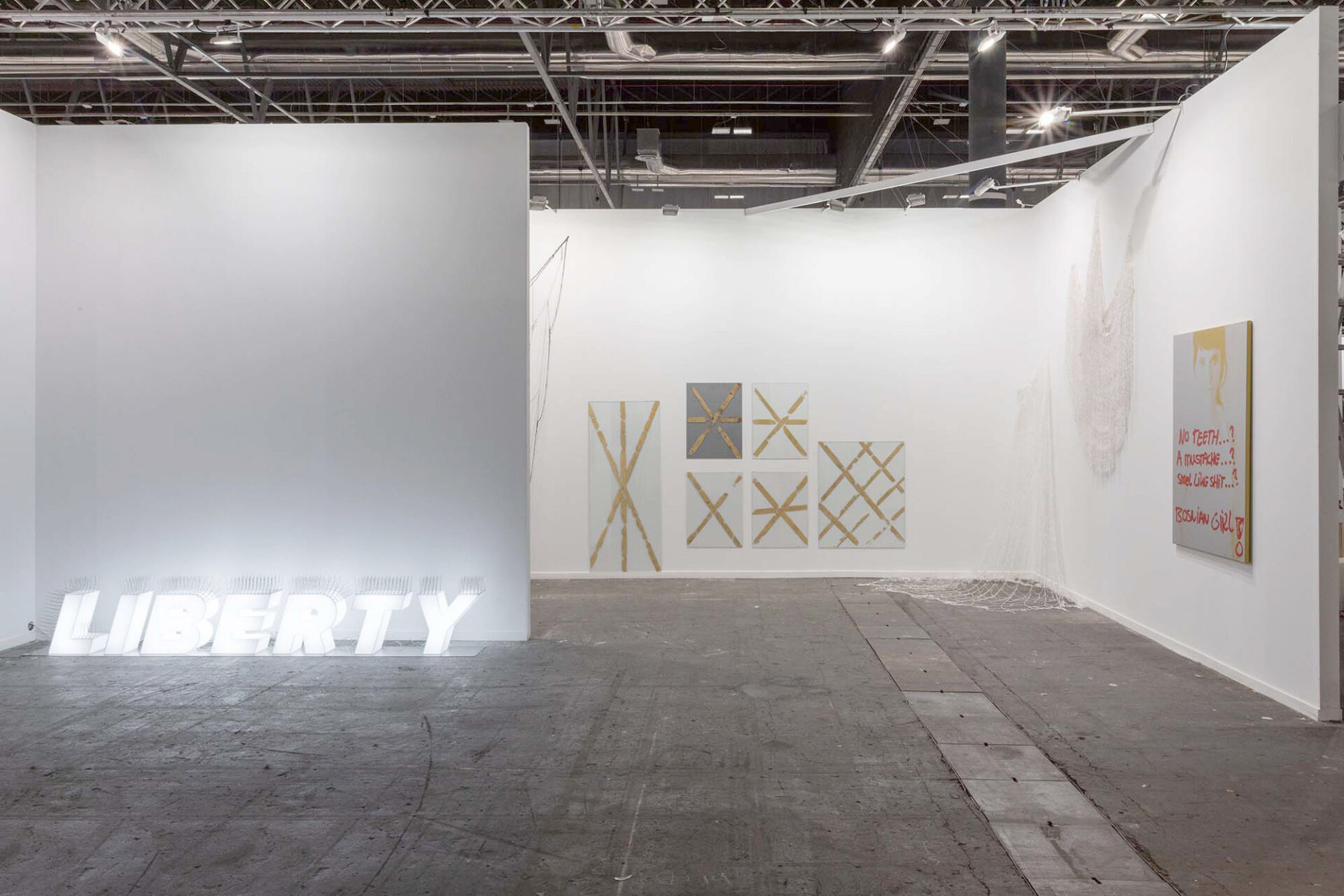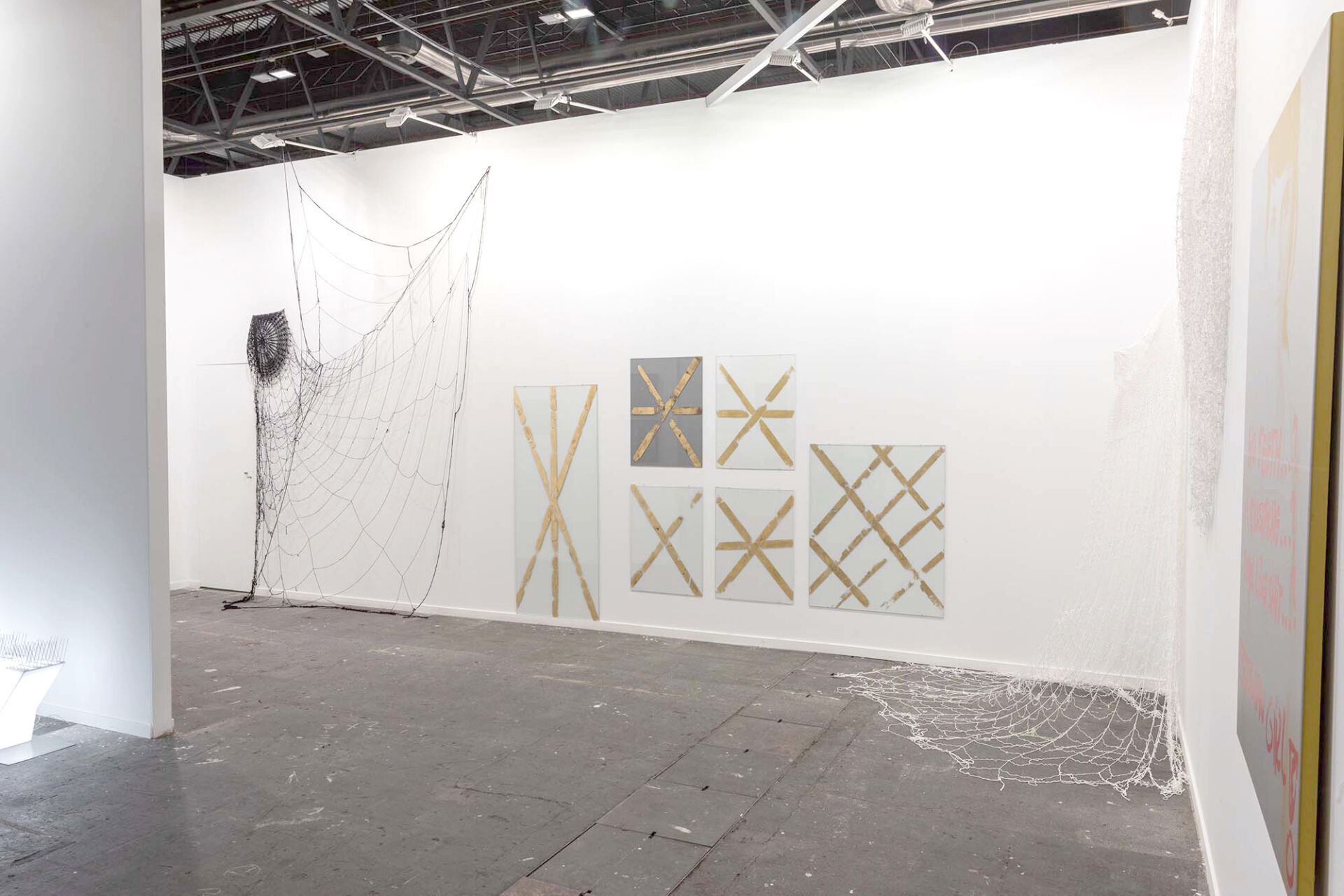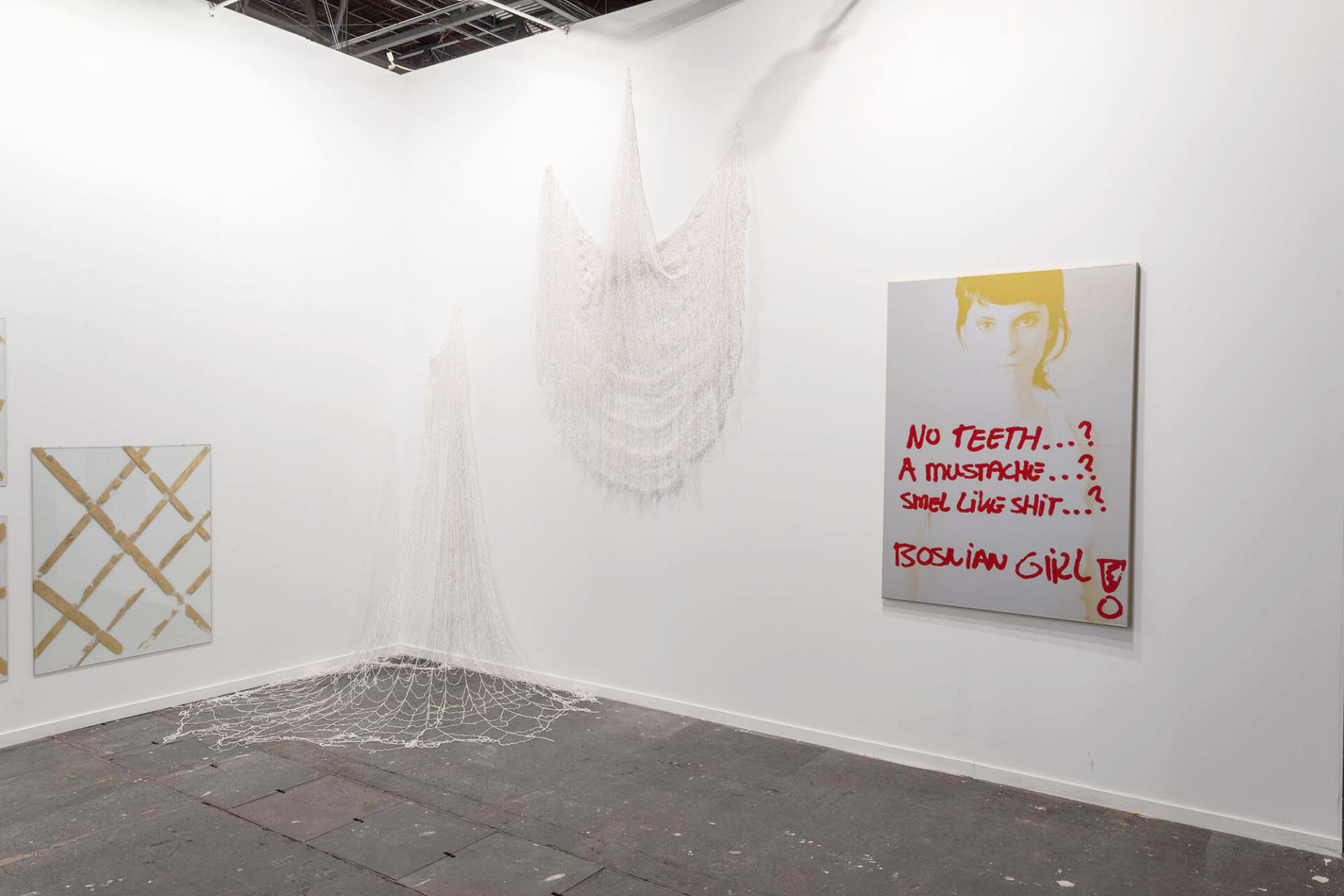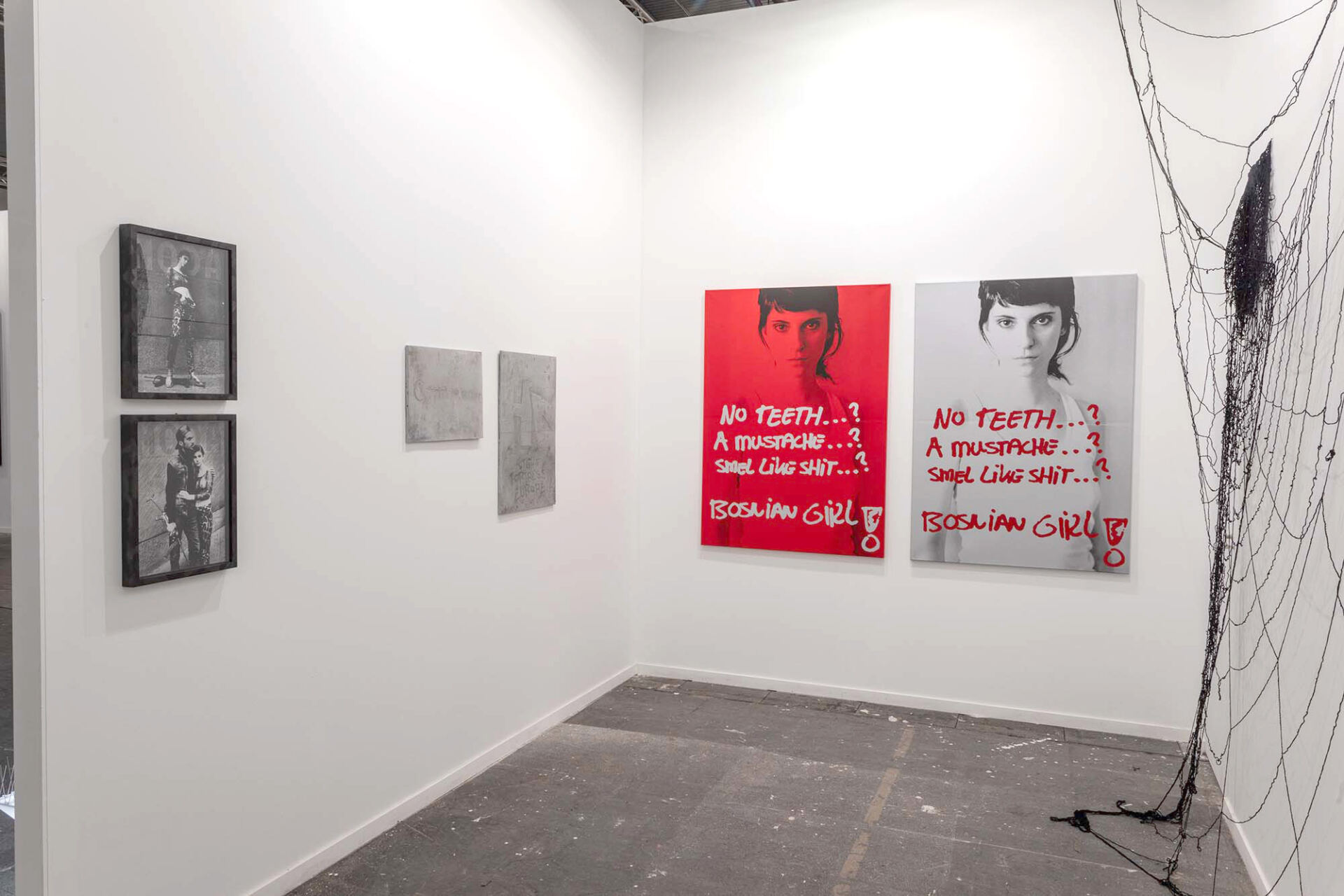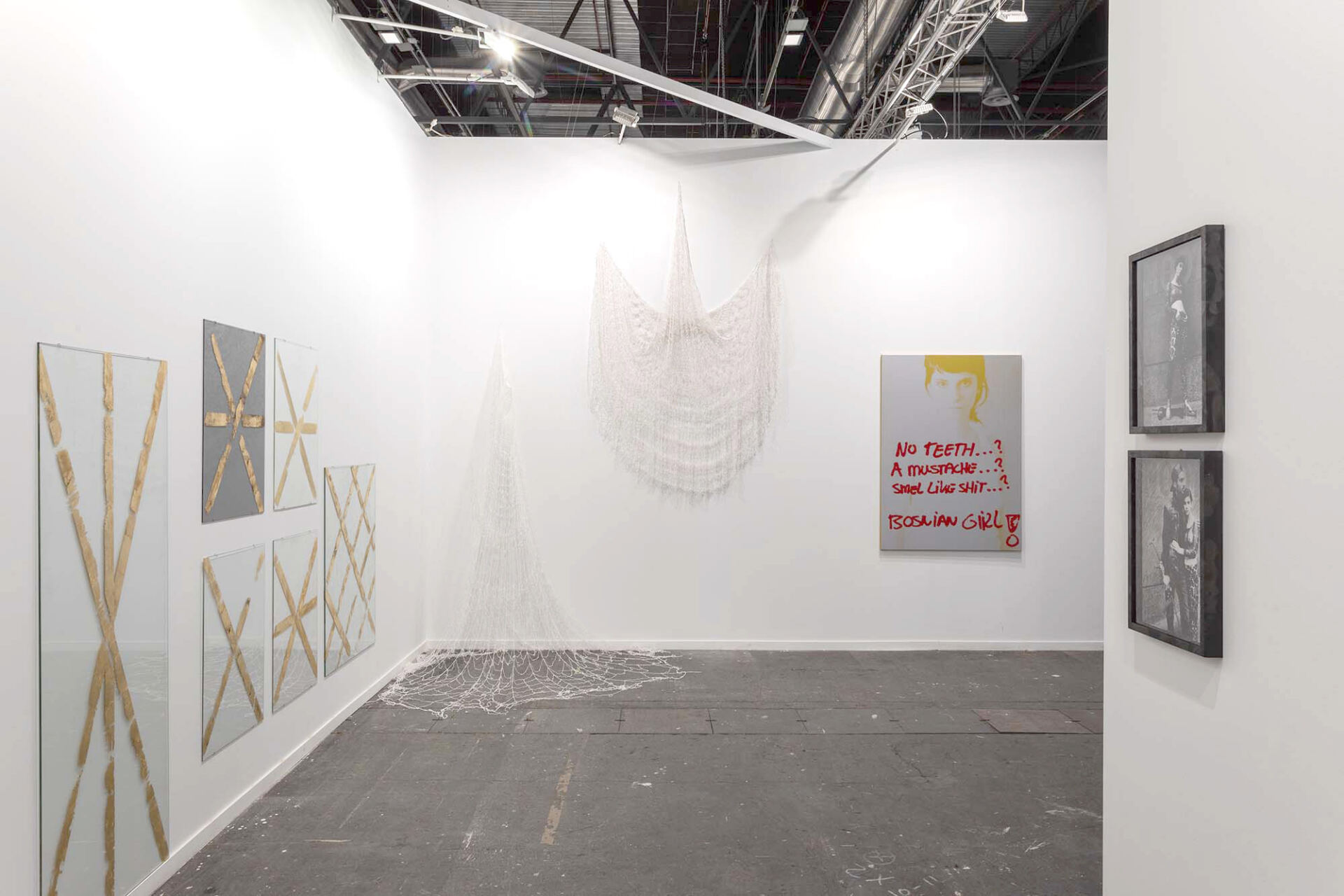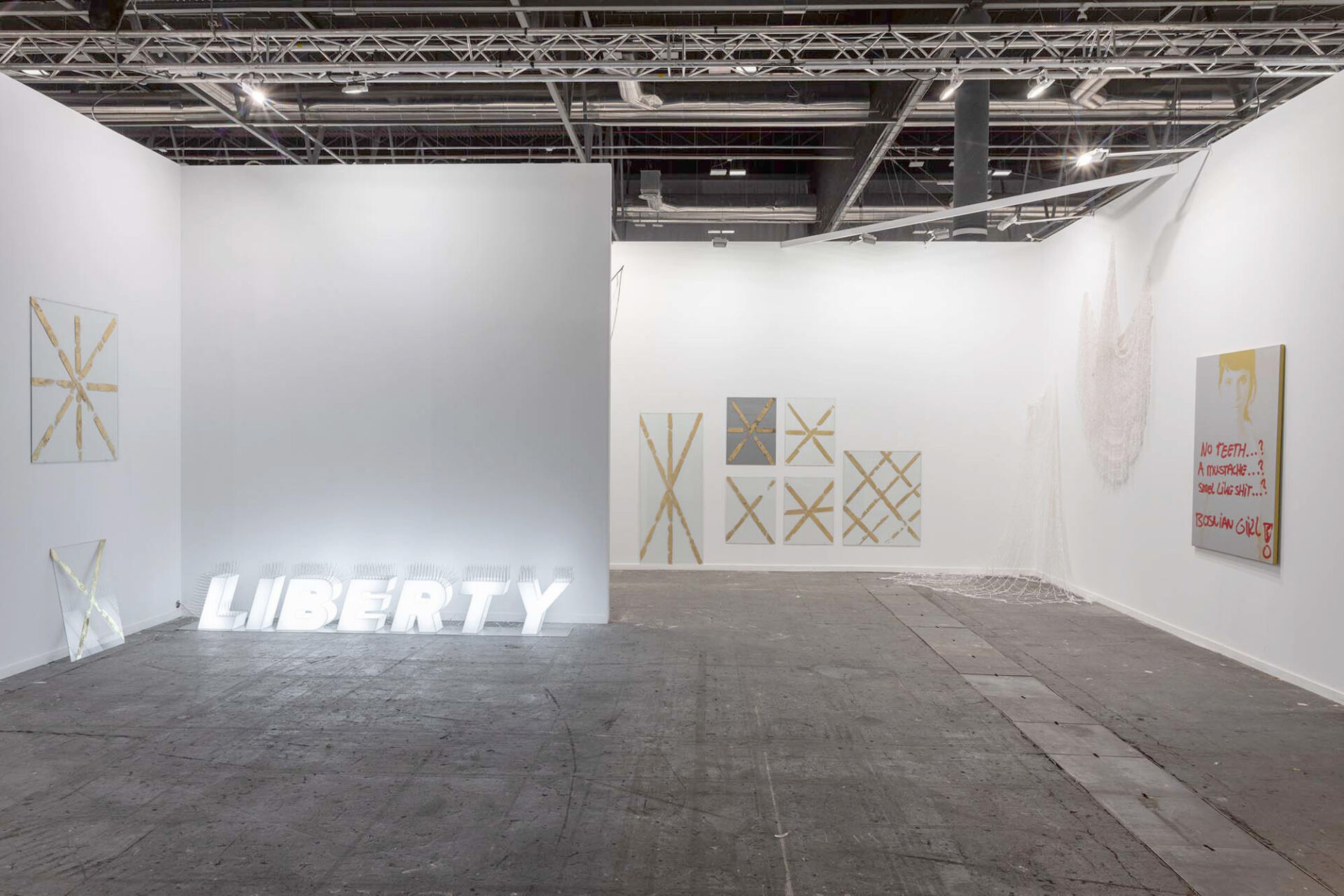Fair
Šejla Kamerić at Eugster || Belgrade ARCO Madrid 2023
Booth 9D11, Hall 9
Eugster || Belgrade presents a selection of new and existing iconic works by the renowned Bosnian-born artist Šejla Kamerić, one of the key art figures of the Yugoslav war generation with a strong international presence.
Šejla continues to be a leading voice of affirmative change, care and empathy when it comes to urgent societal questions, questions of gender, class, human rights and ecological survival. She refers, by means of soft power and subversion, to the most important questions of our times, reviewing the crucial role of feminism today, in a world charged by the toxic death drive of the patriarchy and capitalism. This is an especially important quality for art coming from a region set up by traditionalist traps that often lead to repressive nostalgia, formality and machismo. Šejla plays with the local specificities of her origins, but also with the world into which she exports this authenticity.
The booth shows some of her well-known pieces, custom-made editions: BOSNIAN GIRL (2003 —) the special version of the work made in collaboration with the German curator René Block — an iteration of the work that is now in Tate Modern’s permanent viewing space and collection; and the new alteration of the work LIBERTY (2015, 2023*), produced as a lightbox, anew, with a cursive font instead of the regular one. The alternation of the original piece speaks of the distortion of liberty as a metaphor, which seemed like an impossible, expensive commodity in 2015 already (as made clear with the pigeon-repellent intervention on the signage). Nowadays, it is almost as if the word begins to lose its meaning: liberty seems more like a utopian noun than a common right, as will be seen when the letters begin to, literally, “get out of shape”.
Concerned with the oppressive forces that exclude everything other than the dominant, Šejla continues with new pieces that are derived partly from the Bosnian Girl intents. Her new pieces LETTERS FROM THE FRONTIERS (2022 —), depict the writings of immigrants that are lost in other people’s land. Some of these intentionally play with the famous and heroic quotes that should, perhaps, be questioned. For example, “All men die, but not all men really live” is a semantic and contextual re-assessment on the famous sentence from the arguably problematic film Braveheart: “Every man dies, not every man really lives”.
In contrast to the mentioned hard-surface works, we present the pieces from the knitting series HOOKED (2010 —), an ongoing collection of soft spider-web styled crochets, recently shown at Manifesta 14. These are the works that subvert the “womanly” practices and routines that, essentially, speak of the woman’s exclusion from “important” matters that have, traditionally, been taken over by men. Decorative, non- utilitarian objects belong to the “lowbrow” non-sophisticated Balkan household, but they are brought back to the high-end art market, haunting the very creator of these hierarchical divisions. They embrace the feminine interpretation of the monumental, which represents a nuisance, a menace to the patriarchal society, as Edi Muka justly interprets in his text relating to the works.
The stand also presents works from the ongoing series X GLASS (2013 —), in which the glass and gold-leaf pieces recreate the unconventional method of protecting the house windows during bombing invasions; and a new iteration of the two works from BEHIND THE SCENES (2019) series, in which the artist herself and a local Sarajevo soldier pose for a fashion magazine during the actual siege of Sarajevo in the 90s. The artist writes over the photographs in pencil, sharing her own thoughts about the absurdity and the gravity of the situation in which fashion and war both make the international headlines.
Text by Natalija Paunic
